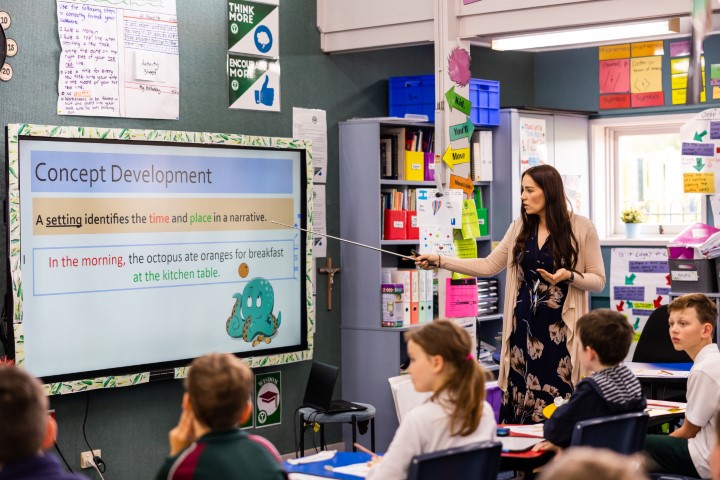10 key insights from the Knowledge Society Science of Learning Tour in London
Members of the CECG team, along with colleagues from other Australian systems, recently returned from the Knowledge Society ‘Science of Learning Tour’ in London. This tour provided a unique opportunity to delve into the English School System’s reform journey and gain valuable insights from some of the highest performing schools in London.
Visits to Ark Soane Academy, Langford Primary, Michaela Community School and Angel Oak Academy gave the team international exposure to the impact of the Science of Learning on student outcomes.
Our team have curated their key learnings for consideration in your system, schools and classrooms.
10 Key Insights
1. Doing less, better!
Focus on improving what you are already doing. Keep refining, not adding, remaining disciplined to focus on what has most impact for improving student learning.
2. Set clear expectations and guidelines for all practice
We tend to focus on clearly sharing the specific practice, or change, we want Leaders and teachers to implement or refine. However, we often aren’t as clear to detail what it isn’t, or being aware of what to do when it goes wrong.
3. Students learn what they attend to
Attention is critical to student learning. There must be consideration for the structures, processes and systems in place within the school to minimise distractions in the classroom and create the conditions to prioritise teaching and learning.
4. Time is precious
It is critical that there is an urgency to learning. We have limited time to make an impact – focus on the most efficient pathway to achieve the desired outcome.
5. Streamline feedback and coaching so it’s achievable
Observations, feedback and coaching should be part of the culture at a school. Effective feedback is welcomed, streamlined, achievable and consistent.
6. Be ambitious and cut the fluff
Students need clear instructions to achieve their best results. We need to provide better clarity on precisely what it is we want students to know and do with what is taught in every lesson, every day.
7. Every detail matters
Leaders need to be across the detail and sweat the small stuff when it comes to curriculum, pedagogy, assessment and behaviour.
8. Consistency creates efficiencies
Creating consistent and streamlined timetables, instructional routines, curriculum materials, behavioural expectations, and planning time reduces the workload for teachers, so they can focus on high impact teaching.
9. Plan for whole classroom success first
Quality first wave teaching must be our first critical focus when planning. Consider what is required for ALL students in the classroom. Thereafter, what specific scaffolds and supports are required for individual students at point of need.
10. Continuous reflection supports long term sustainability
Leaders (school and system) need to continuously reflect upon, and prioritise, ‘creating the conditions’ for effective and efficient practice to be embedded and sustained.
The CECG team hopes that you find these insights valuable. We continue to explore opportunities to leverage the knowledge of others as we seek to transform students’ lives through learning.
To learn more about our approach to the Science of Learning, see our new Knowledge Pack 3.0 exploring the fundamentals of our 8 Big Ideas of Learning.


